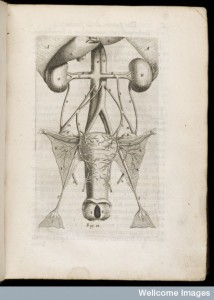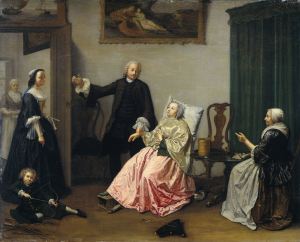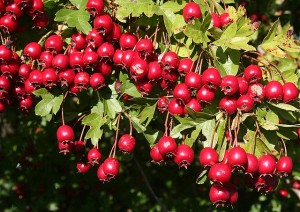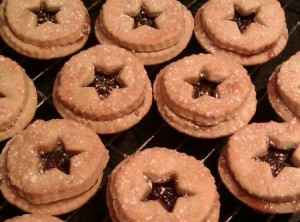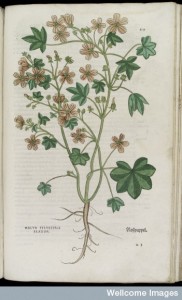
At the end of his English Physician (a work that appeared in many editions from 1652), the prolific author and apothecary Nicholas Culpeper included a section explaining what, exactly, was meant by the various compounds which physicians prescribed. Compounds were the opposite of remedies known as ‘simples’ or medicines made from herbs in their natural form with nothing added.
In this post we’ll run through (an abridged version) of them since it is useful as a reference to some of the cures mentioned here on the blog, but also in Maladies and Medicine. A common theme of many of these processes is a lot of sugar! We’d quite like to try a lohoch or medicated licorice stick …
- Distilled Waters – Waters are distilled from Herbs, Flowers, Fruits, and Roots through a cold water process and can last a year of stored in a pewter pot. Culpeper makes it clear that this is a cold process not the form of heat and evaporation distillation used by chemists.
- Syrups – a Medicine of a Liquid form, ‘composed of Infusion, Decoction and Juyce’ which is made more tasty and will keep better if added to honey and ‘boiled to the thicknesse of new Honey’.
- Juleps– ‘It signifies only a pleasant Potion, and was vulgarly used (by such as were sick and wanted help, or such as were in health, and wanted no money) to quench thirst’.
- Decoctions – the process of extracting soluble substances by boiling them ‘AL the difference between Decoctions, and Syrups made by Decoction, is this, Syrups are made to keep, Decoctions only for present use; for you can hardly keep a Decoction a week any time, if the weather be hot, not half so long. Decoctions are made of Leavs, Roots, Flowers, Seeds, Fruits, or Barks, conducing to the Cure of the Disease you make them for; in the same manner are they made as we shewed you in Syrups. Decoctions made with Wine last longer than such as are made with Water, and if you take your Decoction to clense the Passages of Urine, or open Obstructions, your best way is to make it with white Wine instead of Water, because this is most penetrating’.
- Oyls – predominantly olive oil, ‘which is commonly known by the name of Sallet Oyl, I suppose because it is usually eaten with Sallets by them that love it; If it be pressed out of ripe Olives, according to Galen is temperate, and exceeds in no one quality’.
- Electuary – pastes or powders mixed with honey. ‘PHysitians makes more a quoil then needs behalf about Electuaries: I shal prescribe but one general way of making them up; as for the ingredients you may vary them as you please’.
- Conserves – can be either made from herbs and flowers or fruits. Herbal conserves are made in a mortar by pounding them with sugar whereas fruit ones are made from boiling fruit pulp in sugar.
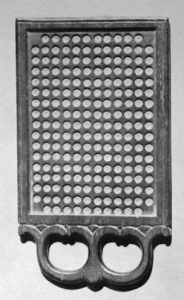
Pill moulds, 18th century, from the collection of Eugene Segers, Brussels. Wellcome Library - Preserves – flowers, fruits, roots, or bark preserved in sugar.
- Lohoch -linctus or medicines to be taken by licking. ‘They are in Body thicker than a Syrup, and not so thick as an Electuary. The manner of taking them, is often to take a little with a Liquoris stick, and let it go down at leisure’.
- Ointments – essentially medications mixed into grease for topical application.
- Plaisters – medicated plasters made by mixing herbs into mediums including animal dung and placing on the affected area.
- Pultisses or poultice – heated medications applied to the skin to draw out malign humours. To be used with caution.
- Troche – buttons -medicines made into little cakes, to make them easier to carry when travelling.
- Pills – balls of medicines. ‘It is the Opinion of Modern Physitians, That this way of making up Medicines, was invented only to deceive the Pallat, that so by swallowing them down whol, the bitterness of the Medicine might not be perceived, or at least it might not be unsufferable; and indeed most of their Pils, though not al, are very bitter’. Also have the advantage of being hard so meaning the medicine lasts longer in the body.
So there you have it, a whole range of medicinal compounds, made by a range of practitioners for different purposes, summarised by Culpeper in an attempt to educate people about what they were consuming.
